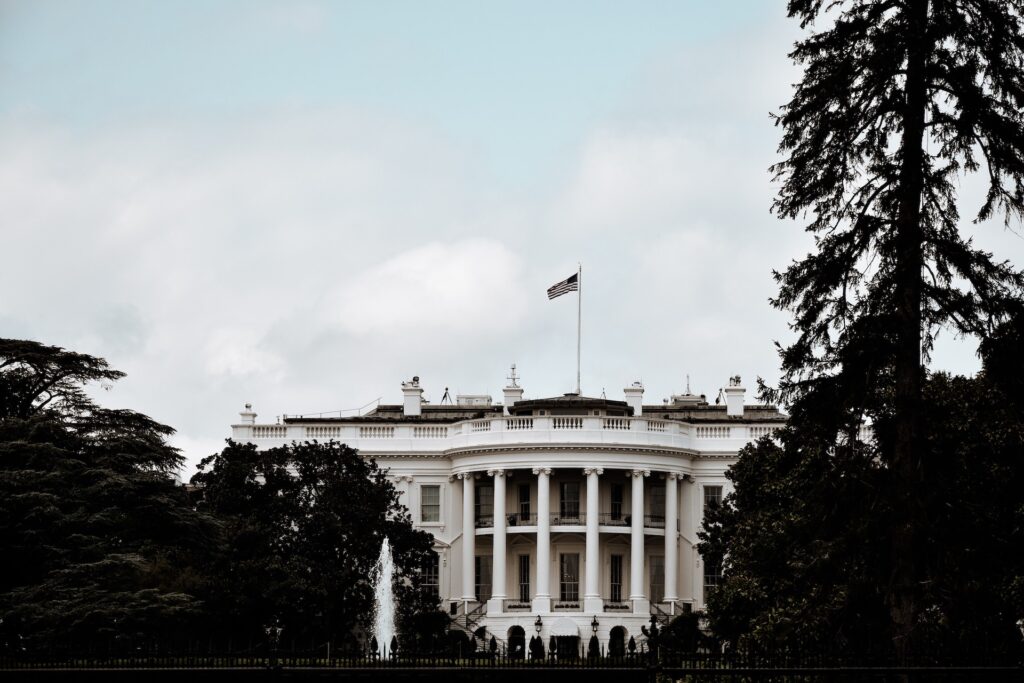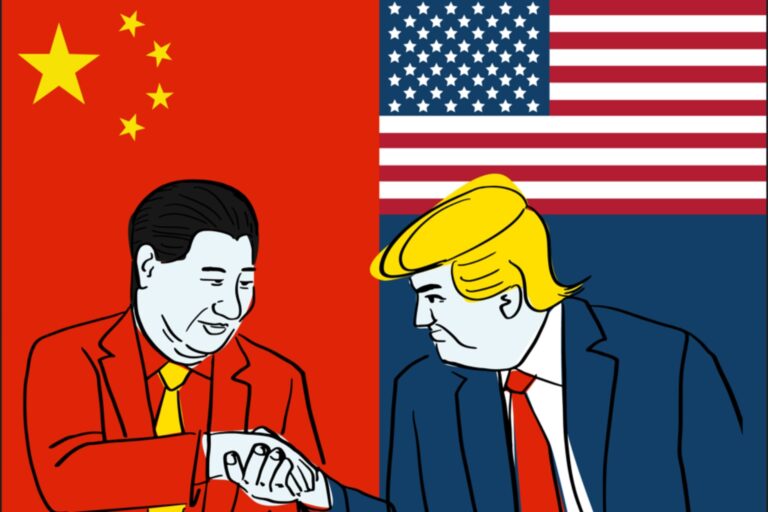During his maiden trip to Asia as president in late May 2022, Joe Biden implied that the United States would take stronger military action to defend Taiwan against China than his administration has taken to support Ukraine to fight against Russia.[1] While meeting with Japanese Prime Minister Kishida Fumio in Tokyo, Biden’s robust declaration evidently caused some consternation in the White House as it quickly reiterated the US adherence to the “One China” policy and the commitment to provide Taiwan with defensive weapons only.
More importantly, however, the president has explicitly compared the potential Chinese invasion of Taiwan with the Russian war in Ukraine, stressing that “attempts to change the status quo by force, like Russia’s aggression against Ukraine, should never be tolerated in the Indo-Pacific.”[2]
President Biden had made similarly powerful statements two months earlier during his trip to Poland. In a fiery speech at the Royal Castle in Warsaw on March 25, 2022, he observed that the unprovoked war in Ukraine is part of a global struggle “between democracy and autocracy, between liberty and oppression, between rules-based order and one governed by brute force.”[3] This “great battle for freedom” will define the future of the world.
With these words, Biden seemed to have invoked the historically transformative Truman Doctrine in his geopolitical and geo-economic statecraft for world affairs.
Revival of the Truman Doctrine
George Kennan—the famous US diplomat and historian best known for his “Long Telegram”[4] from Moscow to Washington in February 1946—advocated successfully a “containment policy” to oppose Soviet expansionism following WWII. Sharing his firsthand observations about the Soviet system and the threat of the world-wide communist expansion, Kennan’s telegram provided the primary underpinning for the Truman Doctrine, which aimed essentially at containing the spread of communism at the dawn of the Cold War.
Addressing the Joint Session of the US Congress on March 12, 1947, President Harry S. Truman announced that “every nation must choose between alternative ways of life.”[5] It is a choice between “the will of the majority” that guarantees individual liberty, freedom of speech and religion, and freedom from political oppression on one hand, and “the power relied on terror and oppression” that is forcibly imposed with the control of media, fixed elections, and the suppression of personal freedoms on the other.[6]
The US containment policy was implemented for the first time in 1949 by providing $400 million worth of “military and economic assistance” to Greece and Turkey in order to save these countries from falling into the hands of communists.[7] Soon afterward, the Greek crisis indeed resolved, and both countries joined the newly created North Atlantic Treaty Organization (NATO) security alliance. By signing the National Security Act, Truman also created the Central Intelligence Agency (CIA), the National Security Council (NSC), and the US Air Force.[8] As a result, together with the Marshall Plan that aimed at rebuilding the post-war Europe, the Truman Doctrine defined the US policy of Soviet containment throughout the Cold War.
At the seventy-fifth anniversary of the Truman Doctrine, the global community now observes some similarities between the two conflicts unfolding in Ukraine and Taiwan. Even though the Soviet Union collapsed over thirty years ago, Russia is yet again trying to expand its former territory westward. In the Taiwan case, President Xi Jinping vowed to unify the “breakaway province” to achieve his national rejuvenation of the Chinese nation “by force if necessary.”[9]
Like in the past, these are more than regional conflicts—they are proxy wars between democracy and autocracy. The situation has heightened since the Beijing’s Winter Olympics in February 2022 when President Xi and his Russian counterpart Vladimir Putin signed a pact-like friendship agreement.[10] The Sino-Russian pact affirms that there are “no limits” in their partnership as there are “no forbidden areas of cooperation” between the two states.[11]
Supporting Democracy Amidst the Rising Autocratic Powers
Apart from Ukraine, the United States keeps a close eye on Taiwan, strengthening its support for the Tsai Ing-wen administration in Taipei through a series of high level visits by American legislative leaders and senior government officials, a number of new congressional legislations, and a range of upgraded military arrangements and trainings.[12] While designating China as a “strategic competitor,”[13] the Biden administration has quietly encouraged Taiwan to get missiles and smaller arms for asymmetric warfare that has gained urgency since Russia’s invasion of Ukraine.[14]
This signifies that Washington’s growing engagement on the two theaters of military operations—eastern Europe and Indo-Pacific—is a direct challenge to the two giant Eurasian powers: the autocracies of China and Russia. The newly emerging calculus of Sino-Russian nexus between Xi and Putin is formulated to create a “new world order” to compete with the perceived common enemy: the United States and its democratic alliance in the West.[15],[16]
For Xi and Putin, the American-led enlargement of NATO pact, the Indo-Pacific Quad (with Australia, India, and Japan), and the AUKUS nuclear submarine agreement (with Australia and the United Kingdom) directly serve to encircle China and Russia and pose a threat to their autocratic and expansionist ambitions. Leading the once “humiliated empire,” Xi has envisioned the “rejuvenation of Chinese nation” with his Belt and Road Initiative (BRI) and the “reunification” of China;[17] Putin felt that the “wounded bear” of Russia with its glorious past must be resuscitated after the collapse of the Soviet Union.[18]
Having developed their ambitions into nationalistic ideologies, the two autocratic leaders revised their constitutions to remain in power, oppressed the ethnic minorities, and advocated their socio-cultural orthodoxies. More significantly, the territorial expansion underpins their personal ambitions to leave a glorious legacy. The examples range from the Russian annexation of Crimea from Ukraine to the Chinese “strategic incrementalism” in the construction of artificial South China Sea islands[19] and the desired unification of Taiwan. For both China and Russia, territorial integrity is an unfinished business that needs to be settled with their emergent power.
Biden’s New Truman Doctrine
Widely-accepted democratic values and the Universal Declaration of Human Rights must first be defended and strengthened in the icon of democracy: the United States. The challenge came after the four years of the “Make America Great Again” Trump presidency.[20] He supported the autocratic leaders like Putin, undermined the democratically elected leaders like Zelensky of Ukraine, and contributed to US withdrawal from world affairs by championing the “America first” ideals. Now, Biden has the herculean task to regain credibility and trust in the eyes of the global democratic community.
Upholding his Inaugural Speech in 2021, President Biden is now revitalizing the tradition of the Truman Doctrine that “we lead not by the example of our power but by the power of our example.” To extend military, economic, diplomatic, and moral support for Ukraine, the US Congress approved an unprecedented $6.5 billion for military assistance in March as part of $13.6 billion in spending for Ukraine and allies.[21]
On April 28, the Biden White House asked Congress to approve additional $33 billion for military, economic, and humanitarian aid to Ukraine.[22] With an unusual speed and bipartisan solidarity, Congress overwhelmingly approved a $40 billion aid package.[23] It is designed to fortify “Ukraine’s defenses against the Russian invasion.”[24] The president also requested the power to seize and sell the assets of wealthy Russians, claiming to support Ukraine and its “fight for freedom.”[25]
Beyond the Military Deterrence: Trade with All
The US commitment must not be limited to deterrence of the autocratic adversaries by solely supporting its allies and partners by military means only. Washington must also counterbalance the Chinese multi-billion dollar BRI projects and Beijing’s advancements in communication technology and cybersecurity network and boost its own investments and trade cooperation with allies and partners across the world.
Realizing the formidable challenge posed by the Chinese geo-economic strategy, Biden and a dozen of Indo-Pacific partners launched the Indo-Pacific Economic Framework for Prosperity (IPEF) in Tokyo on May 23.[26] The success of these initial partners of IPEF—Australia, Brunei, India, Indonesia, Japan, Malaysia, New Zealand, the Philippines, Singapore, South Korea, Thailand, and Vietnam—will define the viability of emerging partnership between the United States and the Indo-Pacific region to counterbalance the rise of China.
It is no secret that the foreign policy begins at home. Economic growth strategy is therefore as important as national security for every country—no matter how big or small. On the top of that, the world is still trying to recover from the COVID-19 pandemic and struggling with a galloping inflation. The Biden White House has lately begun to realize that it needs a comprehensive, long-term multidimensional geo-economic strategy to nurture US relationships with the Indo-Pacific partners to offset China.
Indeed, the military spending for the development of the defense industry has its own backward and forward economic linkages to broader national economy—especially providing employment opportunities to other supporting industries of the military-industrial complex. However, it must be combined with a proper balance between security treaties and economic cooperation prospects with IPEF partners that might be attractive enough for them to side with the United States. Many of these states—especially smaller countries and island-nations—need primarily a set of economic tools to develop their own societies and strengthen their partnerships with the United States.
The Biden White House must draw a lesson from the case of Greece and Turkey, and provide both Ukraine and Taiwan with a balanced military and economic assistance. Only then would the New Truman Doctrine find its true reincarnation for a more democratic and peaceful world.
[1] Kevin Liptak, Donald Judd, and Nectar Gan, “Biden says US would respond ‘militarily’ if China attacked Taiwan, but White House insists there’s no policy change,” CNN, May 23, 2022, https://edition.cnn.com/2022/05/23/politics/biden-taiwan-china-japan-intl-hnk/index.html.
[2] Liptak, Judd, and Gan, “Biden says US would respond ‘militarily’.”
[3] “Full transcript of President Biden’s speech in Warsaw on Russia’s invasion of Ukraine,” ABC News, last updated May 26, 2022, https://abcnews.go.com/Politics/full-transcript-president-bidens-speech-warsaw-russias-invasion/story?id=83690301.
[4] James M. Lindsay, “TWE Remembers: George Kennan and the Long Telegram,” Council on Foreign Relations, February 22, 2012, https://www.cfr.org/blog/twe-remembers-george-kennan-and-long-telegram.
[5] “Truman Doctrine (1947),” National Archives, last updated February 8, 2022, https://www.archives.gov/milestone-documents/truman-doctrine.
[6] National Archives, “Truman Doctrine (1947).”
[7] “The Truman Doctrine, 1947,” Office of the Historian, last accessed June 15, 2022, https://history.state.gov/milestones/1945-1952/truman-doctrine.
[8] “President Truman signs the National Security Act,” History, last updated July 24, 2020, https://www.history.com/this-day-in-history/truman-signs-the-national-security-act.
[9] BBC Staff, “China-Taiwan tensions: Xi Jinping says ‘reunification’ must be fulfilled,” BBC News, October 9, 2021, https://www.bbc.com/news/world-asia-china-58854081.
[10] Patrick Mendis, Antonina Luszczykiewicz, and Lukasz Zamecki, “Is Beijing Creating a New Sino-Russian World Order? The Russian Invasion of Ukraine Might Change Beijing’s Calculus for Taiwan and the United States,” Harvard International Review, March 8, 2022, https://hir.harvard.edu/is-beijing-creating-a-new-sino-russian-world-order/.
[11] Tony Munroe, Andrew Osborn, and Humeyra Pamuk, “China, Russia partner up against West at Olympics summit,” Reuters, February 4, 2022, https://www.reuters.com/world/europe/russia-china-tell-nato-stop-expansion-moscow-backs-beijing-taiwan-2022-02-04/.
[12] The Associated Press, “U.S. lawmakers signal support for Taiwan in visit,” NPR, April 15, 2022, https://www.npr.org/2022/04/15/1093003540/us-lawmakers-signal-support-for-taiwan-in-visit.
[13] Michael J. Mazarr et al., Understanding Influence in the Strategic Competition with China (Washington: RAND Corporation, 2021).
[14] Edward Wong and Amy Qin, “U.S. Presses Taiwan to Buy Weapons More Suited to Win Against China,” The New York Times, May 10, 2022, https://www.nytimes.com/2022/05/07/us/politics/china-taiwan-weapons.html.
[15] Mendis, Luszczykiewicz, and Zamecki, “Is Beijing Creating a New Sino-Russian World Order?.”
[16] Patrick Mendis and Antonina Luszczykiewicz, “Is the Summit for Democracy America’s Solution to the China Challenge?,” The National Interest, December 7, 2021, https://nationalinterest.org/feature/summit-democracy-america%E2%80%99s-solution-china-challenge-197589
[17] Patrick Mendis, “China Tutors U.S. President on Global Governance,” China-US Focus, October 12, 2017, https://www.chinausfocus.com/foreign-policy/china-tutors-us-president-on-global-governance-.
[18] Stephen Glover, “Shamed by the loss of empire, Russia is a wounded bear we provoke at our grave peril,” Daily Mail, August 10, 2008, https://www.dailymail.co.uk/news/article-1043476/Shamed-loss-empire-Russia-wounded-bear-provoke-grave-peril.html.
[19] Patrick Mendis and Joey Wang, “China’s Art of Strategic Incrementalism in the South China Sea,” The National Interest, August 8, 2020, https://nationalinterest.org/feature/china%E2%80%99s-art-strategic-incrementalism-south-china-sea-166445.
[20] Patrick Mendis, “’Beautiful Country’ but Dispensable?” China-US Focus 13, (March 2017): 17–21, https://www.chinausfocus.com/magazine/v13/China-US-Focus-Digest-v13.pdf.
[21] Matthew Lee, “Blinken, Austin return from visit to Ukraine, say ‘Russia is failing’ in war efforts,” PBS, April 25, 2022, https://www.pbs.org/newshour/world/blinken-austin-return-from-visit-to-ukraine-say-russia-is-failing-in-war-efforts.
[22] Justin Sink, Erik Wasson, Nancy Cook, and Jordan Fabian, “Biden Seeks $33 Billion More for Ukraine, Girding for Longer War,” Bloomberg, April 28, 2022, https://www.bloomberg.com/news/articles/2022-04-28/biden-to-request-33-billion-in-emergency-funding-for-ukraine.
[23] Catie Edmonson and Emily Cochrane, “The Senate overwhelmingly approves $40 billion in aid to Ukraine, sending it to Biden,” The New York Times, May 19, 2022, https://www.nytimes.com/2022/05/19/us/politics/senate-passes-ukraine-aid.html.
[24] Connor O’Brien and Jennifer Scholtes, “Senate falters in push to pass $40B Ukraine aid,” Politico, May 12, 2022, https://www.politico.com/news/2022/05/12/senate-vote-40b-ukraine-aid-package-00031992.
[25] Sink, Wasson, Cook, and Fabian, “Biden Seeks $33 Billion More.”
[26] The White House, “In Asia, President Biden and a Dozen Indo-Pacific Partners Launch the Indo-Pacific Economic Framework for Prosperity,” news release, May 23, 2022, https://www.whitehouse.gov/briefing-room/statements-releases/2022/05/23/fact-sheet-in-asia-president-biden-and-a-dozen-indo-pacific-partners-launch-the-indo-pacific-economic-framework-for-prosperity/.




